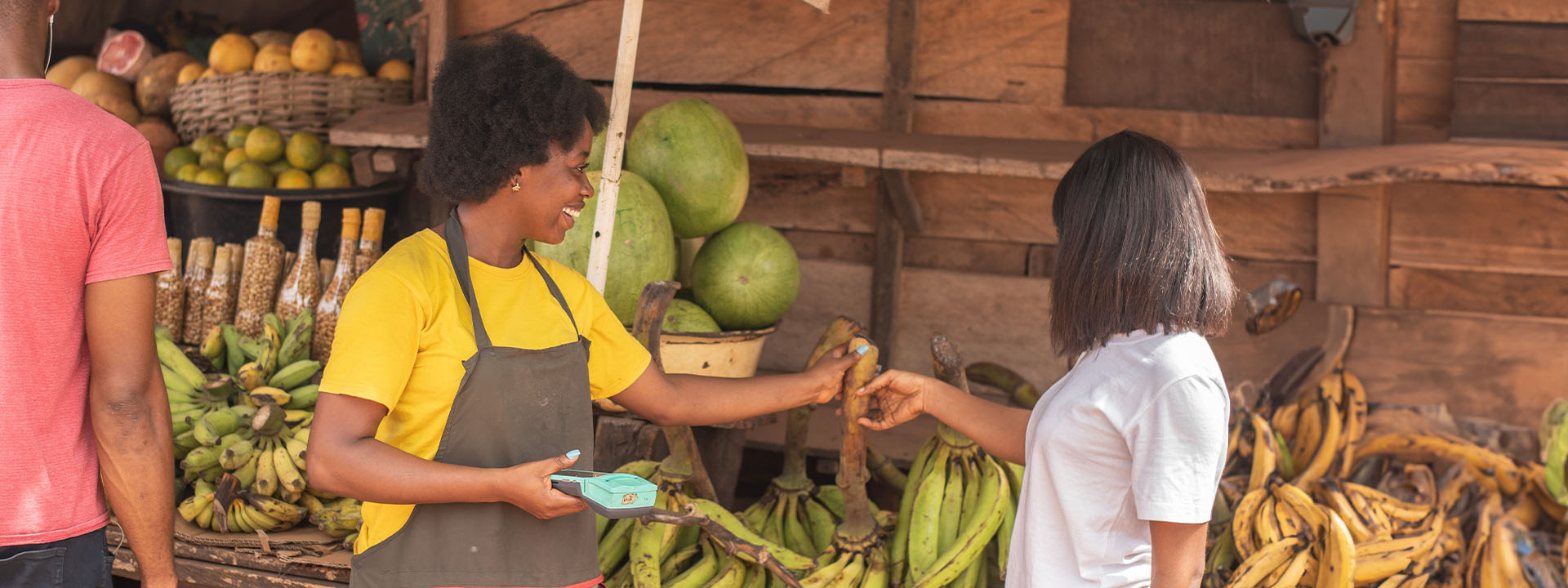

Women power economies around the world.
Their impact — as founders, CEOs, athletes, artists and key decision-makers — touches every sector of the global economy. Yet, from Lagos to London, Boston to Beijing, they are underrepresented. A profound gender gap exists across industries. The gap is so wide that the World Economic Forum estimates that it will take over 130 years to close. We’re talking about the granddaughters of the generation born this morning maybe having a shot at gender equity.
Quite frankly, that is unacceptable. A promise two lifetimes away is hardly a promise at all.
Closing the gap can have an immediate, tangible impact on social and economic growth. According to the IMF, countries with greater gender inequality who close only the gap in women’s labor force participation increase their economic output by an average of 35 percent.
So, what can we do to bring parity closer to reality, right here, right now? Here are three ways Visa and Visa Foundation are working toward closing the gender gap today and focusing on expanding financial inclusion for women entrepreneurs around the world.
Strengthen the entrepreneurial ecosystem
Today, nearly one billion women are unserved or underserved by the formal financial sector especially as they attempt to start or grow their business. The impact of this inequity is substantial. Without access to the financial sector, women entrepreneurs are unable to meet their business needs, adequately care for their family, and weather financial shocks. This is why a safer, more inclusive entrepreneurial ecosystem is necessary so that women have an equitable shot at entrepreneurial success.
As part of advancing financial inclusion efforts for women-led small businesses, Visa Foundation is supporting the launch of The Women Entrepreneurs Finance Code (We-Fi or the Code), a program that aims to engage dozens of countries and reach hundreds of financial service providers to significantly accelerate financing for women-led SMBs, with a $500,000 grant to the World Bank’s implementing partner, Financial Alliance for Women.
Expand access to financial services
Women continue to be left behind in today’s digital world. Women in low- and middle-income countries are 20 percent less likely than men to hold a formal financial account. Visa and Visa Foundation are focused on expanding access to financial services, including financial and business development training, technical assistance, mentorship and networks.
Mitigating fraud risks and protecting data and privacy is critical to empowering women-led small businesses to confidently and safely engage in the digital economy. Toward that end, Visa and GSMA Mobile for Development Foundation (GSMA Foundation) recently launched the Digital Finance for All (DFA) Initiative to advance digital financial inclusion for 20 million individuals, including women, small holder farmers (SHF), and nano, micro and small enterprise (NMSE) owners across low- and middle-income countries in Africa, Asia and Latin America. As part of this effort, Visa will deliver financial education resources to help these businesses easily scale across markets.
To date, Visa Foundation has committed $80 million in grants to 50 organizations across the globe that support women entrepreneurs. With a $1 million grant from Visa Foundation, Pro Mujer, a nonprofit that works to advance gender equity in Latin America, launched Emprende, a digital platform providing business resources, mentoring, and financial training to women entrepreneurs across Central America. Emprende’s initial pilot reached 25,000 women entrepreneurs, 80 percent of whom said they were confident the platform helped them to improve their business.
Increase access to capital
The World Bank estimates that the global finance gap for women-owned businesses is $1.7 trillion — more than 6 percent of total GDP. This imbalance is a critical barrier to women entrepreneurs’ growth. Visa has prioritized empowering women-led businesses through the She’s Next grant program and by partnering with groups like Vital Voices, a global “venture catalyst” that identifies extraordinary women entrepreneurs and tackles gender-based and economic issues.
Tolu Alabi, co-founder and CEO of Cleva, is passionate about the way technology simplifies and elevates how we experience the world. She developed a fintech platform that enables African business owners and individuals to receive international payments, spend via debit cards and make investments without paying excessive fees or managing local currency fluctuations. Thanks to Visa Foundation’s $7M commitment to Nigeria-based TLcom Capital, she launched Cleva in August 2023, helping Nigerians protect their income and generate wealth.
Visa Foundation has committed more than $120 million to 24 investment funds around the world, including TLcom Capital’s fund, part of which is earmarked to support women-led pre-seed companies in partnership with FirstCheck Africa. These investments provide capital to women across the entrepreneurial ecosystem — from microentrepreneurs leading family-run businesses to small business owners achieving steady growth, all the way to startup founders running high-growth ventures.
We all have a role to play in closing the gender gap.
Visa and Visa Foundation work to improve access to the digital financial ecosystem — removing barriers to participation and connecting more people to the global economy in the more than 200 countries and territories in which we operate. Our longstanding focus on supporting women’s economic advancement is one example of how we bring our purpose — to uplift everyone, everywhere — to life.
At the end of the day, the gender gap is a world-scale problem, one that will require concerted effort across governments and industry to close. We all have a role to play to make a meaningful impact for women in business today — not in three generations.